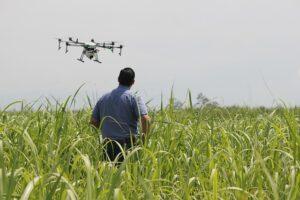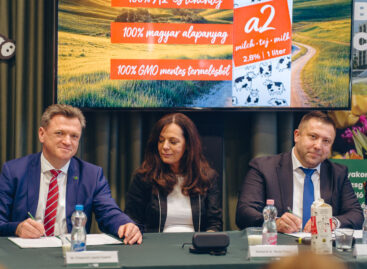Nébih also supports legal domestic drone plant protection with targeted inspections
This year, the National Food Chain Safety Office (Nébih) continued its supportive on-site inspections of private individuals and businesses promoting drone plant protection activities. The results of the tests showed a mixed picture, but the experts also saw progress compared to the year 2022.

(Photo: Pixabay)
During the official inspection, providing customers with all the details was a priority. In the summer-autumn period, Nébih experts checked nine companies and individuals who published a call for drone plant protection on their electronic platforms, partly on the basis of a public interest report. Based on the advertisements, it could be assumed that they (also) carry out their plant protection activities for the purpose of product production and services with a drone. The fact that, compared to last year, the majority of customers checked this year fulfilled the material and personal conditions related to legal drone plant protection is a cause for confidence. They have certified an unmanned aircraft system (UAS: unmanned aircraft system) that meets the requirements of the Civil Aviation Authority, they have a spraying drone marketed with a valid license, and they also meet the relevant personnel conditions. That is, they have an unmanned aerial vehicle pilot’s license, a plant protection drone pilot qualification certificate, and are listed in the official plant protection drone pilot register. In addition, they know the regulatory environment related to their activities relatively well.
In three cases, however, the persons concerned did not, or only partially, satisfy the material and personal requirements, and moreover, they committed a proven violation of the law on one or more occasions
Thus, for example, they carried out insecticidal treatment of sweet corn, desiccation of rapeseed and sunflower, as well as other illegal agricultural flights in a significant area. Depending on the severity of the discovered violations, the inspectors imposed plant protection fines of hundreds of thousands in two cases and millions in one case. In addition, the related procedural costs must be paid by the parties involved, and the authority prohibited them from carrying out and advertising the illegal activity. Nébih also draws the attention of agricultural producers and service providers to the full compliance with the relevant rules. The competent authorities will continue the inspections in the 2024 agricultural season as well.
Nébih
Related news
The presence of bird flu has also been confirmed in Bács-Kiskun County
🎧 Hallgasd a cikket: Lejátszás Szünet Folytatás Leállítás Nyelv: Auto…
Read more >Related news
Tourism Business Index: improving sentiment, but the sector remains in the red
🎧 Hallgasd a cikket: Lejátszás Szünet Folytatás Leállítás Nyelv: Auto…
Read more >Levente Balogh announces a revolution in the quality dairy products market
🎧 Hallgasd a cikket: Lejátszás Szünet Folytatás Leállítás Nyelv: Auto…
Read more >









